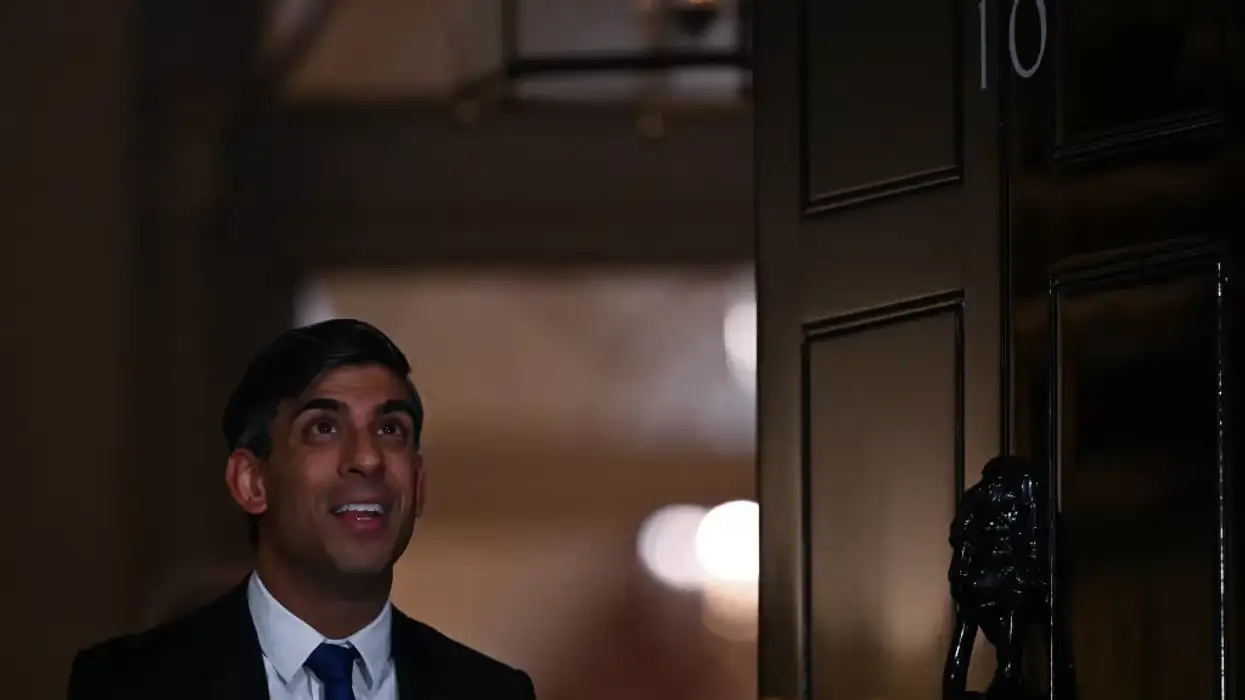RISHI SUNAK insisted Thursday (7) that his latest immigration plan would work, as the issue threatened to tear apart his ruling Tories, putting his premiership in jeopardy.
Sunak came out fighting after his government's latest attempt to deport asylum seekers to Rwanda sparked the resignation of his immigration minister, who said it did not go far enough.
His former home secretary Suella Braverman also said the law was destined to fail, and urged Sunak to change course on immigration -- a major political battleground in next year's expected general election.
At a hastily convened news conference in Downing Street, Sunak sought to appease right-wing Tories who want him to withdraw Britain from the European Court of Human Rights, to stop courts blocking removals.
He also denied that a vote on the Rwanda legislation expected in parliament next week would amount to a confidence vote on his leadership.
"This bill blocks every single reason that has ever been used to prevent flights to Rwanda from taking off," Sunak told reporters.
"The only extremely narrow exception will be if you can prove with credible and compelling evidence that you specifically have a real and imminent risk of serious and irreversible harm."
The bill -- drawn up after Supreme Court judges last month ruled the deportation plan was illegal, saying Rwanda was not a safe country -- could be voted on by MPs for the first time on Tuesday (12).
It compels judges to treat Rwanda as safe and proposes giving UK ministers powers to disregard sections of human rights legislation.
The proposals have sparked fresh concerns from opposition parties and human rights groups, while Rwanda warned it would withdraw from a bilateral treaty signed only on Tuesday (5) if the UK does not respect international law.
A feisty Sunak asserted the primacy of the UK parliament on the issue and also said he would not allow a "foreign court" to dictate what Britain could do.
"This bill will work... we will get flights off the ground, we will deter illegal migrants from coming here and we will finally stop the boats," he added.
The issue is widening schisms in an already heavily fractured Tory party that has served up four prime ministers in just over four years.
The divisions between right-wingers and moderates have worsened since Britain voted to leave the European Union in 2016, largely on a promise to "take back control" of its borders.
Braverman, sacked by Sunak last month after several incendiary comments, has warned that the Tories face "electoral oblivion" if the Rwanda bill fails.
"It's certainly going to require a big effort from Sunak and the government to fend off a rebellion," said Chris Hopkins, politics director at the polling firm Savanta.
Sunak, appointed unopposed by Tory MPs just over a year ago, ducked a question about whether he would call an early election -- which must be held by January 2025 -- if he loses the vote, as some Westminster watchers are speculating.
"I want to finish the job. Finishing the job means getting this legislation on the statute book," he said.
Tory party chairman Richard Holden said later that holding another internal leadership contest to replace Sunak would be "insanity", as rumours swirled about a possible challenge.
Sunak has bet his pledge to "stop the boats" crossing the Channel on the Rwanda scheme, which has been stuck in the courts since the first deportees were pulled off a flight at the last minute in June 2022 after an injunction from the European Court of Human Rights.
Almost 30,000 irregular migrants have crossed the Channel from northern France in rudimentary vessels this year.
Sunak is also under pressure to crack down on record levels of regular migration. Data released last month showed that 745,000 more people arrived in the UK last year than left.
On Thursday he replaced immigration minister Robert Jenrick with two ministers -- one for "illegal migration" and one for "legal migration".
The Tories, in power since 2010, lag well behind Labour, the main opposition party, in opinion polls.
A survey released by Ipsos on Thursday found that 52 per cent of voters now had an unfavourable view of Sunak. His approval ratings have fallen from minus nine in January to minus 28.
(AFP)














